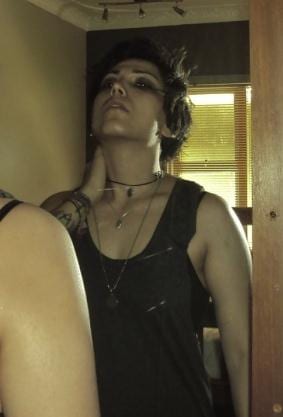Before I could pay for my breakfast wrap and tea, my girlfriend grabbed my hand and pulled some bills from her own pocket. Her noble gesture instantly drew my lips to hers. When I pulled away, I shot a glance around the café, expecting to find a frown or some judgment-contorted features.
To my surprise, I found neither.
I’m 24. I’ve been in a lesbian relationship for a year and I still expect someone to chase me down with a torch and a pitchfork. Or stone me to death.
In Syria, Saudi Arabia, Yemen, Bhutan, Bangladesh and many other countries, homosexual acts are punishable by death or prison. I was, luckily, not born in one of those countries. But I endured my fair share of oppression during my youth in Turkey, where homosexuality bounces between being a sinful diversion and a fatal taboo.
Growing up, my skin was a holy secret not to be revealed. It worked on the principle of the less, the better — the same as the number of boyfriends I was permitted.
For a long time, that was just fine with me. I had no problem being just friends with the opposite sex and never had to challenge my parents. But then something hit me at 90 kilometres per hour: what if that’s because I wanted something else?
In the protective yet subdued bubble of fear that I was raised in, nothing but boys was ever mentioned. Girls who like other girls would exist only in my brother’s DVD cabinet. Man on man would be a circus act, literally.
The unwritten rules of an ancient culture steeped in male dominance had erased all the sapphic possibilities from our beds. I didn’t know what “lesbian” meant.
As puberty slowly chewed away at my skin and revealed my feminine highlights, I grew more aware of how things felt “down there.” It didn’t take too long for me to realize that I liked pink bits over stiff sticks, but when it came to saying this out loud . . .
I first tried to tell a few close friends. To this day, I still don’t know how some of them felt about it, as they suddenly evaporated. A couple of them seemed convinced that I would want to have sex with them on a daily basis and felt the need to warn me against it.
My colleagues were even more confused. The guys tried to accept me as one of them; the girls were offended and distant. It got to a point where my sexual preference overshadowed all my other qualities, so I had to quit. My sexuality had just cost me a job.
Next step was my family. When I tried to drop hints stronger than bombs, they simply turned the other way and ignored it. They refused to even listen, and we came to an unofficial agreement: I’m not gay, and they won’t want grandkids.
I began noticing more and more homosexuals around. Walking down the street became a quiet game of “spot the gay,” and to my surprise there were many, though they tried not to stand out.
Meeting a few on the sly brought me to the nightclubs where we were all unleashed.
It was all there, only in such secrecy that to get into the club you had to arrive with someone who’d been there before.
It was there that I met boys molested by their families after coming out. It was their “lesson” to learn. I saw traces of physical violence and abandonment all over them.
I met lesbians who constantly had to ward off the attentions of “real men” determined to convert them. Their taunts often turned violent.
Even at police stations, where some went to seek refuge, danger lurked in disguise. Reporting crimes against homosexuals was a farce that could leave you exposed against your will.
In March 2008 a bartender was punched to death for his flamboyant attitude. The common verdict: he had it coming! None of us stood up. Our legs were shaking with the fear of being the next example.
That’s when I decided that I was neither quiet nor strong enough to live that life. So I chose to leave.
I left the war zone not because I wanted to dodge bullets exactly, but because discrimination is a lot like stray shrapnel. It makes life a living hell.
Now I’m here, learning how to live openly and hold my girlfriend’s hand in public.

 Why you can trust Xtra
Why you can trust Xtra


